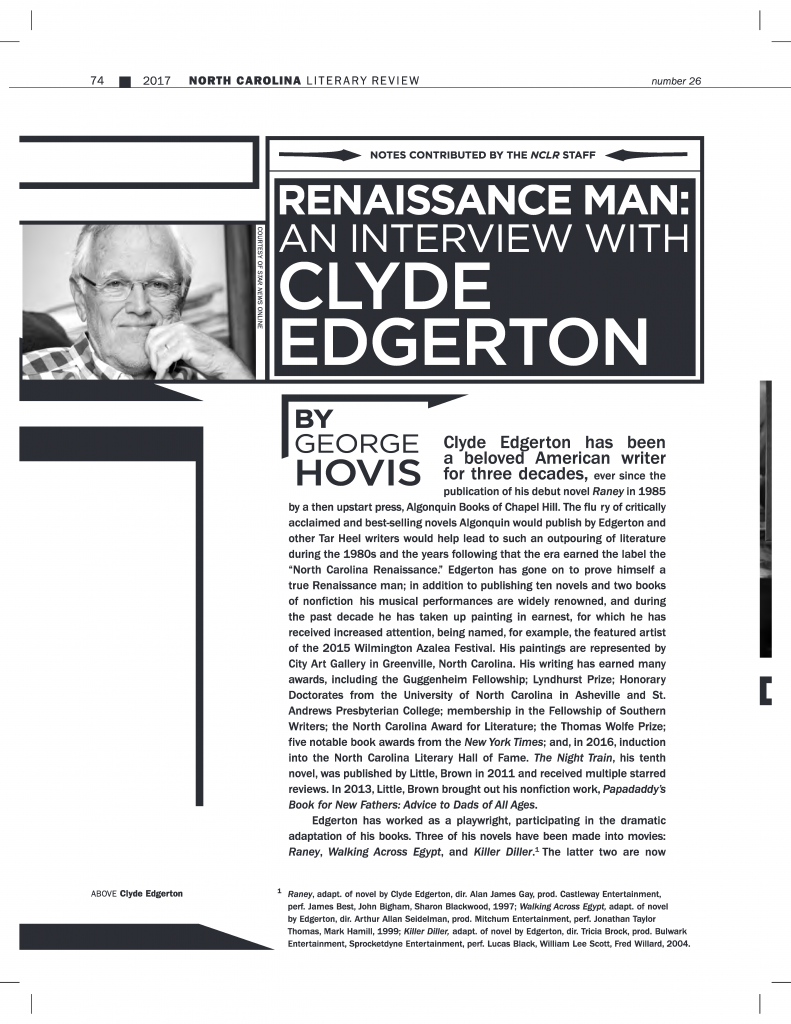by Daniel C. Moreno, Editorial Assistant
Friday from the Archives: “Renaissance Man: An Interview with Clyde Edgerton” by George Hovis, from NCLR Issue 26 (2017)
In 2016, George Hovis interviewed Clyde Edgerton. The conversation not only highlights Edgerton’s repeated success in multiple artistic mediums, but also gives us a deep dive into the author’s philosophy about creativity.
They discuss all aspects of Edgerton’s artistic history: his collection of renowned written material, including novels and creative non-fiction, his band “The Dirt Road Deacons” and his collaborations with other musicians, and his more recent experiences in painting. They also talked about his experience as a playwright participating in the adaptation of his books, and, by the end, they even delve into his views on teaching creative writing, as a professor at UNC Wilmington. For good measure, they touch on his fiercely sincere and widely appreciated insights about being a father in Papadaddy’s Book for New Fathers: Advice to Dads of All Ages.
Aware of Edgerton’s immense protean success, the first thing on Hovis’s mind is: “What is the source of all that creativity? Is there a common source?”
Edgerton’s answer focuses on his childhood: “An early, strong exposure to a plethora of Bible story illustrations, as backdrop to a strong community push and motherly push for me to believe in a physical, all-seeing God in a real place called heaven,” which he believes facilitates an imaginative perspective on life. But Edgerton is particularly emphatic about another catalyst to his creativity: “I believe that early on I was sheltered in a way that kept me from certain kinds of insecurity, certain kinds of pain. I had very attentive and loving parents – I was an only child – but there was that fear of eternal punishment, probably more than I might now realize. But match all that with a lot of security and love from twenty-three aunts and uncles and a protective mother, and perhaps creativity pops up.”
When Hovis asks about his more recent artistic endeavors in painting, Edgerton has this to say: “You know, I think of the things that show up related to creativity, and one is obsession. And most people can only be obsessed with one thing at a time. (…) So one of the places I find myself at age seventy-two is being more obsessed with painting than I am with writing novels. And I don’t like that, but I can’t fight it.”
Read the entire interview on ProQuest or by ordering the 2017 issue featuring “North Carolina Literature and the Other Arts.”
